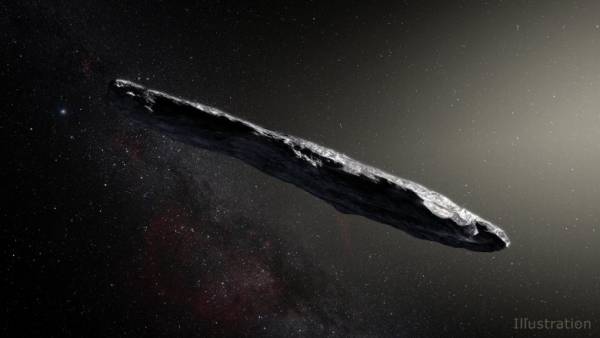Chaotic “cucumber” published details about a guest from another galaxy
Dr. Wesley Fraser from Queen’s University in Belfast and his colleagues have published a series of studies on the asteroid 1I/Omwamwi first discovered interstellar object in our Solar system.

In his latest study published in the journal Nature Astronomy, they tried to create a more accurate “portrait” of the asteroid, and made assumptions where it came from or where it’s going, reports the Independent.
“Now we know that this cosmic cucumber has a violent past, which rotates chaotically,” said Fraser, who calls the facility “a rather unusual compared to most asteroids and comets that we see in our own Solar system.”
Analyzing the measurement subject brightness over time, scientists realized that Omwamwi rotates periodically, as the most well-known bodies, and chaotic.
According to scientists, the object could be in this state for billions of years, and probably for the foreseeable future this will continue before the internal voltage will make it rotate normally.
Until we know the cause of the fall, we assume that he probably was exposed to other planetesimal in their system before being thrown out into interstellar space.Wesley Frazier
Another mysterious aspect of the asteroid is the color. Earlier it was reported that the object is dark red, but the research of Dr. Fraser showed that the surface of non-uniform color. When the elongated profile space of the guest was turned to the Earth, he was largely red, but the new analysis showed that the rest of the body, appears to be in color like “dirty snow”.
Scientists believe that Omului, in all probability, is an asteroid and not an alien space ship. However, we still have much to understand about this interstellar visitor.
The researchers suggested that each year through the solar system to pass more than 46 million such interstellar objects, but most of them are too far away from us, so we can see with current technology.